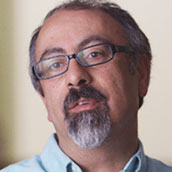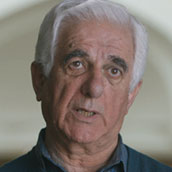 Shafir is Professor of Sociology at University of California San Diego. He is also the Director of the UCSD Human Rights Minor. Shafir received his B.A in Economics, Political Science, and Sociology from Tel Aviv University, his M.A. from the University of California, Los Angeles, and his Ph.D. from the University of California, Berkeley. His co-authored Being Israeli: The Dynamics of Multiple Citizenships, Cambridge University Press, won the Middle Eastern Studies Association’s Albert Hourani Award for best book on the Middle East in 2002. His publications also include “Lessons and Legacies of the ‘War on Terror’ – From Moral Panic to Permanent War”, co-edited with Everard Meade & William J. Aceves was published by Routledge, Being Israeli: The Dynamics of Multiple Citizenships, Shafir, Gershon and Yoav Peled Cambridge, Cambridge University Press, 2002. His current research focus is Israel’s settlement policy and international humanitarian law from 1967 to the present.
Shafir is Professor of Sociology at University of California San Diego. He is also the Director of the UCSD Human Rights Minor. Shafir received his B.A in Economics, Political Science, and Sociology from Tel Aviv University, his M.A. from the University of California, Los Angeles, and his Ph.D. from the University of California, Berkeley. His co-authored Being Israeli: The Dynamics of Multiple Citizenships, Cambridge University Press, won the Middle Eastern Studies Association’s Albert Hourani Award for best book on the Middle East in 2002. His publications also include “Lessons and Legacies of the ‘War on Terror’ – From Moral Panic to Permanent War”, co-edited with Everard Meade & William J. Aceves was published by Routledge, Being Israeli: The Dynamics of Multiple Citizenships, Shafir, Gershon and Yoav Peled Cambridge, Cambridge University Press, 2002. His current research focus is Israel’s settlement policy and international humanitarian law from 1967 to the present.
In his book Land, Labor and the Origins of the Israeli-Palestinian Conflict, 1882-1914, Shafir challenges the heroic myths about the foundation of the State of Israel by investigating the struggle to control land and labor during the early Zionist enterprise. He argues that it was not the imported Zionist ideas that were responsible for the character of the Israeli state, but the particular conditions of the local conflict between the European “settlers” and the Palestinian Arab population.
Specifically on Manya Shohat, see chapter 4:
Struggle and Survival in Palestine/Israel, Edited by Mark LeVine, Gershon Shafir, August 2012, University of California Press.













